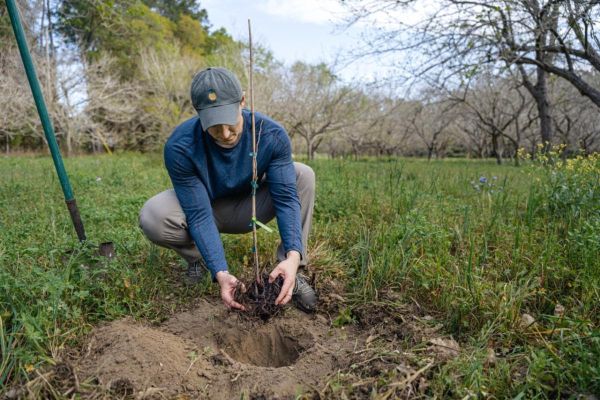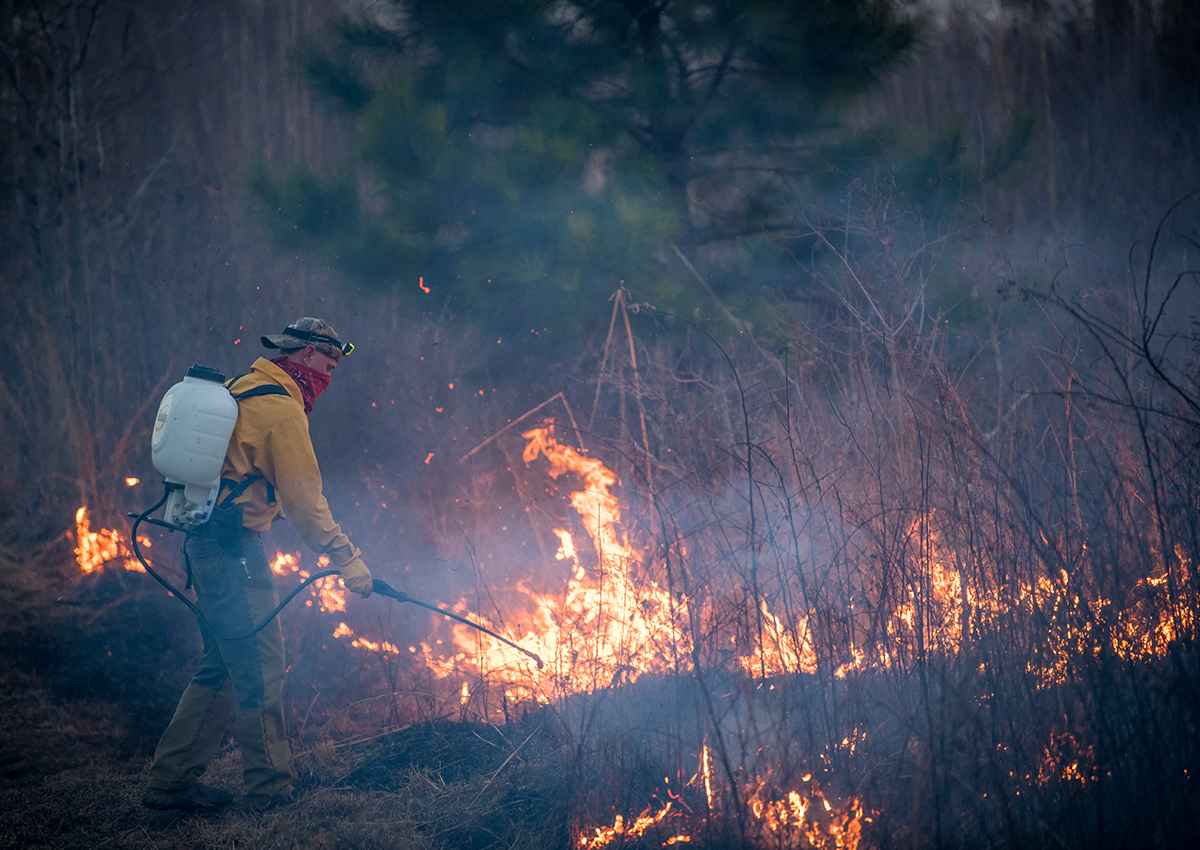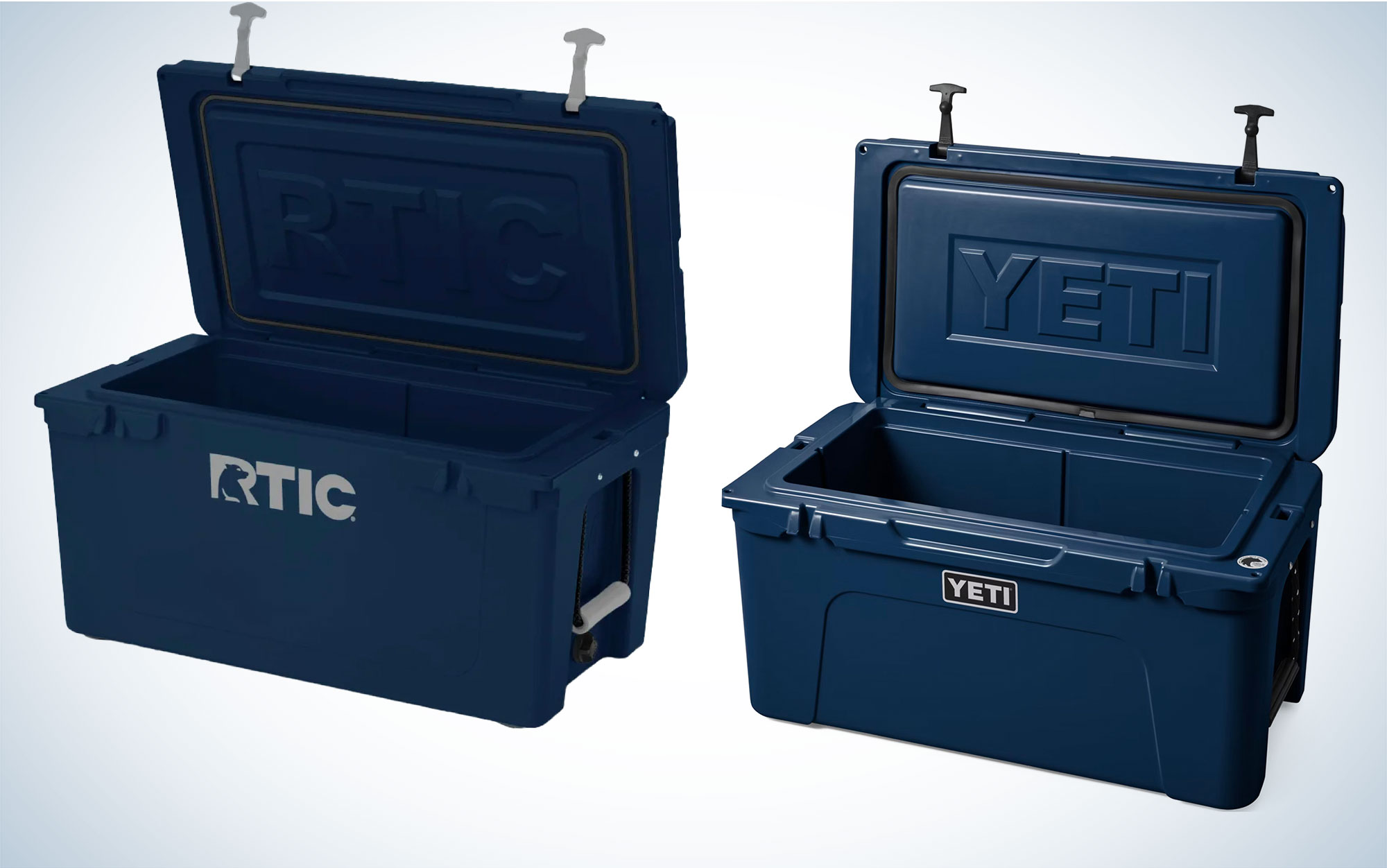Alachua, FL (February 13, 2025) – Planting mast orchards with Dunstan Chestnuts is a great way to attract and hold more wildlife, and the steps taken in that process will determine how productive the plants eventually become. This is why Chestnut Hill Outdoors offers sound advice on planting and care in addition to premium plants.
Site Selection
Choosing a location with the proper moisture, soil, and climate conditions is essential. Dunstan Chestnut trees are best suited to USDA Plant Hardiness Zones 5-9 and should be planted where average annual extreme minimum winter temperatures range between -25 and 30 degrees Fahrenheit. Fortunately, this includes most of the United States, except for extreme northern areas. Planting in low-lying areas should be avoided as they can trap cold air and tend to have wetter soils. Dunstan Chestnut trees thrive in well-drained, sandy-loam soils with a pH of around 5.5 to 6.5. They also require full sun for best results.
Competition
Proper spacing and thinning are essential in reducing competition for sunlight, moisture, and soil nutrients. Young trees should be planted 30 to 50 feet apart, with ideal spacing for nut production around 35 to 40 feet apart. It may seem excessive, but in due time, Dunstan Chestnut trees can grow 40 to 60 feet high with a 30 to 40-foot spread. Undesirable woody plants should also be removed. If mowing and herbicide are needed to remove herbaceous vegetation, these steps should be done well before planting.
Pruning
Chestnuts require minimal pruning, but light pruning in early years helps trees establish a strong central leader structure. Selective pruning should focus on removing competing leaders, weak or damaged branches, and any limbs with narrow crotch angles to reduce the risk of splitting as the tree matures. Making these cuts during dormant times in late winter or early spring minimizes the stress on a tree and reduces the chance of spreading diseases. Early pruning lays the foundation for a productive, long-lived Dunstan Chestnut tree.
Fertilization
Avoid fertilizing when planting, as young trees need plenty of time to establish a strong root system. Fertilizing too soon will lead to excessive top growth, making the tree more vulnerable to stress. Wait until trees are established, then fertilize in early spring as growth begins. Avoid fertilizing in the fall, as it could promote late-season tender growth that can be damaged by early frosts. By timing fertilization correctly, Dunstan Chestnut trees will develop strong, balanced, and healthy structures while minimizing environmental risks.
Watering
Newly planted trees need water regularly, which is the most critical step in their establishment. Young trees are developing their root systems and are highly susceptible to drought stress. Without proper moisture, roots can struggle to establish in the soil, leading to stunted growth, poor health, and even tree loss. However, overwatering can cause root rot. Use mulch around the tree’s base to help retain moisture, regulate temperature, and limit weeds. Avoid piling too much mulch directly against the trunk, leading to pest issues. Maintaining a proper watering schedule in the early years will strengthen Dunstan Chestnut trees and provide more yield season after season.
In time, Dunstan Chestnut trees will provide a crop of nutritionally superior, sweet-tasting, and abundant large nuts—up to 20 pounds per tree after only 10 years and as much as 50 to 100 pounds per tree at maturity. However, these trees can only achieve this level of production with proper planting.
For more detailed instructions on planting by season and weed, pest, and disease control, visit https://chestnuthilloutdoors.com/learning-center/.
About Chestnut Hill Outdoors
Chestnut Hill is the best place for you to purchase your food plot and deer attractant plants because they offer a large selection, their plants are specifically bred to attract deer, and they offer customers different-sized plants at different levels of growth. To ensure you receive the maximum benefit from their products, they also provide sound advice and instruction on proper planting and care. For more on Chestnut Hill Outdoors products and how to care for them, visit ChestnutHillOutdoors.com, or call (855) 386-7826.
Read the full article here




